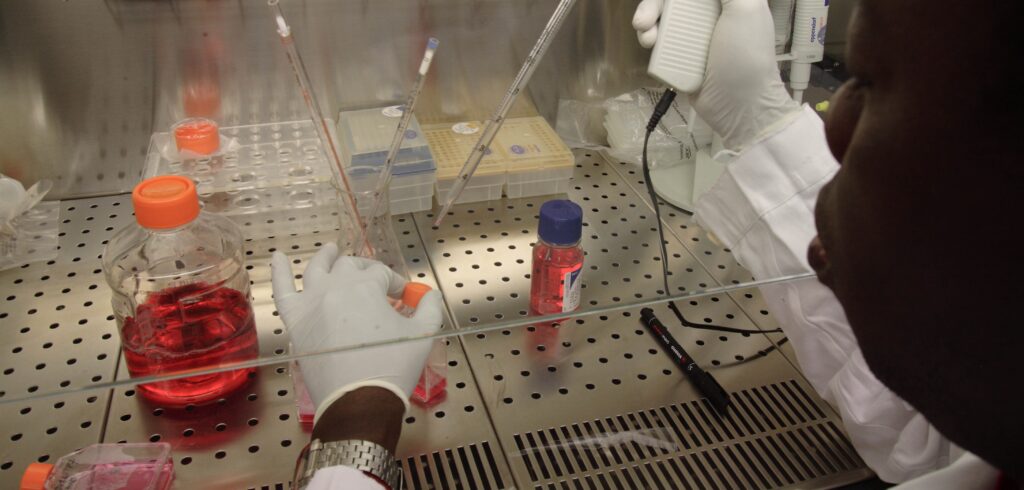VIENNA – Qu Dongyu, Director-General of the Food and Agriculture Organization of the United Nations (FAO), stressed the need to control food safety from the get-go, including soil, water, agricultural and post-harvest practices, and underscored the important role that nuclear technology can play in setting science-based food standards.
“Nuclear technology is a very important tool to measure, manage and control food safety, complementing the One Health approach,” Qu said, adding that food safety and food supply are “fundamental for the transformation of agri-food systems.”
He made the remarks in a video message today at the opening of the International Symposium on Food Safety and Control in Vienna, an event organised by FAO and the International Atomic Energy Agency (IAEA) through the Joint FAO/IAEA Centre for Nuclear Technology for Food and Agriculture.
In his message, the FAO Director-General noted that the Centre was established in 1964 to promote world food security and sustainable agricultural development through the safe and appropriate application of nuclear science and technology. “This visionary collaboration and our joint laboratory are unique within the United Nations system,” he said.
He further stressed the urgency and importance of joint efforts, saying that “high food and energy prices, natural and man-made disasters, the climate crisis and the ongoing impacts of conflicts are significantly affecting food availability, accessibility and affordability globally.”
The symposium, themed “Safe Food for Better Lives” (27-31 May 2024), aims to highlight the important role of nuclear technology in enhancing food safety and agricultural productivity, and to promote information exchange among researchers, government officials and other key partners from developed and developing countries.
Nuclear technologies offer competitive, and often unique, solutions to eradicate hunger, reduce malnutrition, improve environmental sustainability and ensure food safety and reliability. FAO and the IAEA have a strategic partnership to help Member States use these technologies safely and effectively.
The Joint FAO/IAEA Centre, together with agricultural and biotechnology institutes, coordinates and supports applied research through more than 25 collaborative research projects per year, involving more than 400 international and national research institutes and experiment stations.
In addition, the Centre supports over 200 national and regional technical cooperation projects each year and transfers these technologies to Member States.FAO/IAEA's unique laboratory conducts applied and adaptive research and development and provides standards, protocols, guidelines, training and expert services.
The Joint FAO/IAEA Centre has played a key role in leveraging nuclear technologies to address critical issues such as soil fertility, water management, pest control and food safety. This partnership has led to many breakthroughs, including the development of improved crop varieties, more effective pest management strategies and strengthened food safety protocols.
The symposium marks an important milestone in the continuing collaboration between FAO and the IAEA and demonstrates the profound impact of nuclear technologies on global food and agriculture.
FAO's role
FAO is committed to strengthening the link between nuclear science and technology to help all its member countries achieve the “Four Goods”: better production, better nutrition, a better environment and a better life for all.
Ensuring food safety is a complex process that starts on the farm and ends with the consumer. FAO is the leading international organization that oversees all aspects of the food chain, providing a unique and comprehensive perspective on food safety. This holistic view is strengthened by our long-standing partnership with the World Health Organization (WHO).
FAO and WHO have complementary mandates and address a range of issues to support global food safety and protect consumer health. WHO focuses primarily on public health, while FAO generally addresses food safety issues throughout the food production chain. Over the past 60 years, the joint FAO/WHO Codex Alimentarius Commission has provided a forum for technical and policy consultations, laying a strong foundation for international food safety and consumer protection standards.
/Public Release. This material from the originating organization/author may be out of date and has been edited for clarity, style and length. Mirage.News does not take any organizational stance or position and all views, positions and conclusions expressed here are solely those of the authors. Read the full article here.
Source link



